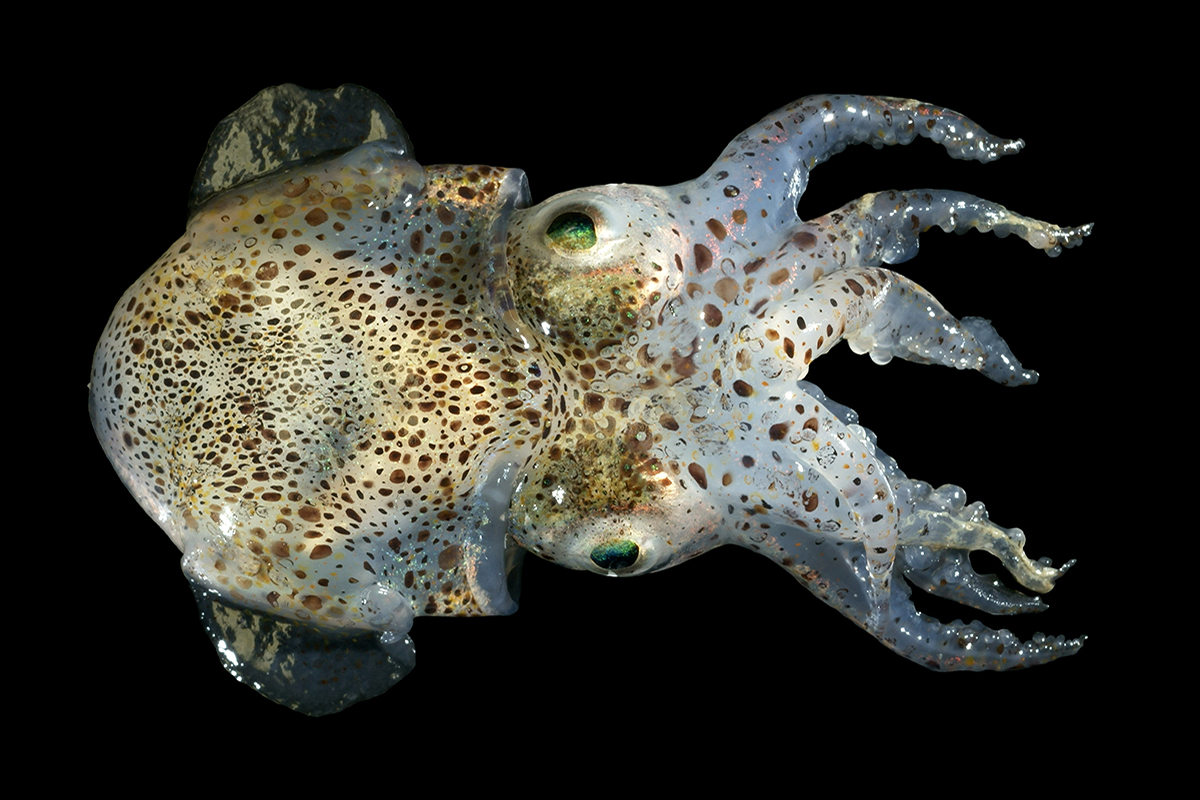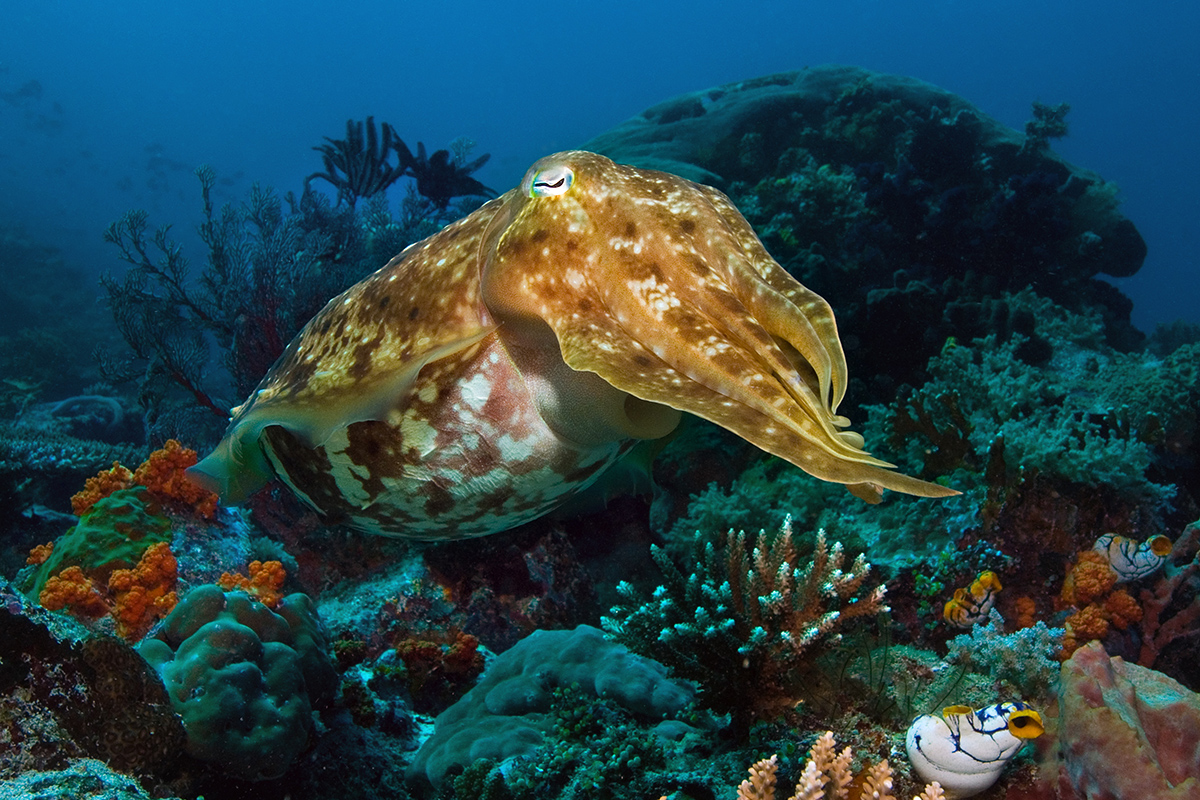Cephalopods You Might Meet Around Gangga Island
North Sulawesi, a province located in the eastern part of Indonesia, is renowned for its rich marine biodiversity. The region’s coastal waters are home to a fascinating array of marine life, including squid and cuttlefish. These cephalopods, with their unique adaptations and captivating behavior, contribute to the vibrant ecosystem of North Sulawesi’s underwater world.
Squid
Squid, belonging to the class Cephalopoda, are fascinating creatures known for their agility and remarkable ability to change color and texture. North Sulawesi offers a diverse range of squid species, attracting both researchers and diving enthusiasts.
One notable species found in the region is the reef squid (Sepioteuthis lessoniana). These creatures display vibrant color patterns and possess fins that allow them to swim with remarkable speed and precision. They are often encountered in coral reef environments, where they use their excellent camouflage abilities to blend into their surroundings and avoid predators.
Another species commonly found in the waters of North Sulawesi is the bobtail squid (Euprymna spp.). These small, nocturnal cephalopods have a unique relationship with bioluminescent bacteria, which inhabit a special light organ within their mantle cavity. By controlling the intensity and color of this light, bobtail squid are able to mimic moonlight, thus providing effective camouflage against predators from below. The symbiotic relationship between these squid and bioluminescent bacteria has been a subject of scientific research and fascination.
Pygmy squid are also interesting creatures. Also known as tiny or dwarf squid, this is a group of small cephalopods that belong to the family Sepiolidae. These fascinating creatures are known for their diminutive size, measuring only a few centimeters in length. Despite their small stature, pygmy squid possess remarkable characteristics and behaviors that make them captivating subjects for scientific study and underwater enthusiasts.
Reproduction in pygmy squid is one of the most impressive adaptations found in cephalopods. Male pygmy squid have a specialized tentacle, known as a hectocotylus, which they use to transfer packets of sperm, called spermatophores, to females during mating. The female stores the sperm until she is ready to fertilize her eggs, which she then deposits in clusters or small capsules attached to underwater vegetation or other structures. The hatched juvenile pygmy squid are miniature replicas of the adults, capable of independent survival from an early stage.
Cuttlefish
Cuttlefish, also belonging to the class Cephalopoda, are close relatives of squid and are known for their intelligence and remarkable ability to change their skin color and pattern. North Sulawesi is home to several species of cuttlefish, including the flamboyant cuttlefish (Metasepia pfefferi). This particular species is renowned for its striking colors and unique behavior. Despite its small size, the flamboyant cuttlefish displays an array of vibrant hues, ranging from pink and purple to yellow and brown, making it one of the most visually captivating creatures in the ocean.
The waters of North Sulawesi provide an ideal habitat for these cephalopods due to the presence of diverse ecosystems, including coral reefs, seagrass beds, and mangrove forests. An abundance of food sources and shelter are found in this environment, allowing squid and cuttlefish populations to thrive. Additionally, the region’s warm tropical waters provide optimal conditions for the growth of phytoplankton, which serves as their primary food source.
North Sulawesi is a popular destination for marine enthusiasts and divers who are captivated by the beauty and diversity of its underwater world. Snorkeling or scuba diving in the region’s pristine waters offers a chance to witness the mesmerizing displays of squid and cuttlefish, observe their intricate behaviors, and appreciate the wonders of the marine realm.



